
- Find a hospital Results See all results Balashikha 1 hospitals Barnaul 2 hospitals Ivanovo 2 hospitals Kaliningrad 2 hospitals Kazan 2 hospitals Kislovodsk 1 hospitals Korolev 1 hospitals Kovrov 1 hospitals Krasnodar 3 hospitals Krasnogorsk 1 hospitals Moscow 41 hospitals Nizhny Novgorod 3 hospitals Novokuibyshevsk 1 hospitals Novokuznetsk 1 hospitals Novosibirsk 4 hospitals Obninsk 1 hospitals Orenburg 1 hospitals Penza 1 hospitals Saint Petersburg 8 hospitals Samara 3 hospitals Surgut 1 hospitals Tomsk 1 hospitals Tyumen 1 hospitals Ulan-Ude 1 hospitals Ulyanovsk 2 hospitals Vladivostok 1 hospitals Volgograd 1 hospitals Vologda 1 hospitals Yalta 1 hospitals Yekaterinburg 2 hospitals All hospitals
- Find a sanatorium Results See all results Altai region 4 sanatoriums Buryatia 1 sanatoriums Crimea 4 sanatoriums Ingushetia 1 sanatoriums Karelia 1 sanatoriums Kislovodsk 1 sanatoriums Krasnodar region 2 sanatoriums Moscow region 5 sanatoriums Nizhny Novgorod Region 1 sanatoriums Saint Petersburg region 1 sanatoriums All sanatoriums
- Check the prices Allergology 29 hospitals Andrology 35 hospitals Bariatric surgery 15 hospitals Cardiology 42 hospitals Cosmetology 21 hospitals Dentistry 25 hospitals Dermatology 37 hospitals Dietetics 15 hospitals Endocrinology 42 hospitals Gastroenterology 38 hospitals Genetics 4 hospitals Gynecology 54 hospitals Hematology 17 hospitals IVF (In Vitro Fertilization) 14 hospitals Mammalogy 33 hospitals Maxillofacial Surgery 9 hospitals Narcology 3 hospitals Neurology 51 hospitals Neurosurgery 16 hospitals Obstetrics 14 hospitals Oncology 42 hospitals Ophthalmology 36 hospitals Orthopedics and traumatology 32 hospitals Otolaryngology (ENT) 39 hospitals Pediatrics 29 hospitals Phlebology 29 hospitals Plastic surgery 22 hospitals Proctology 27 hospitals Psychiatry 13 hospitals Pulmonology 24 hospitals Rehabilitation 17 hospitals Rheumatology 26 hospitals Speech therapy 6 hospitals Surgery 37 hospitals Urology 47 hospitals Venereology 21 hospitals
- List of diseases Aesthetic problems 24 hospitals Allergic diseases 31 hospitals Blood diseases 17 hospitals Cardiovascular diseases 44 hospitals Childhood diseases 27 hospitals Colon diseases 27 hospitals Diseases of the digestive system 42 hospitals Diseases of the mammary glands 34 hospitals Diseases of the musculoskeletal system and injuries 37 hospitals Diseases of veins and lymph nodes 32 hospitals Endocrine diseases 46 hospitals ENT (eye, nose, throat) diseases 40 hospitals Eye diseases 39 hospitals Female diseases 56 hospitals Genetic diseases 6 hospitals Infectious diseases 25 hospitals Male diseases 39 hospitals Mental disorders and phenomena 13 hospitals Narcological problems 6 hospitals Nervous diseases 50 hospitals Oncological diseases 43 hospitals Respiratory diseases 25 hospitals Rheumatic diseases 27 hospitals Skin diseases 37 hospitals Speech disorders 7 hospitals Teeth Diseases 26 hospitals Urological diseases 50 hospitals Venereal diseases 24 hospitals
- Our contacts

N.N. Blokhin Russian Cancer Research Center
Tap to book

About clinic
The Blokhin National Medical Research Center of Oncology of the Russian Ministry of Health is the largest oncological clinic in Russia and Europe, one of the largest oncological clinics in the world, which has the latest equipment and all advanced methods of diagnosis and treatment of cancer.
We see our goal as continuous improvement of the quality and availability of cancer care. To achieve this goal, we are working on improving the system of organizing medical care and introducing the latest technologies.
The structure of the center includes five divisions:
- Research Institute of Clinical Oncology named after N.N. Trapeznikov, designed for 900 beds;
- Research Institute of Pediatric Oncology and Hematology, designed for 150 beds;
- Research Institute of Clinical and Experimental Radiology, designed for 50 beds;
- Research Institute of Carcinogenesis, which includes 16 laboratories;
- Research Institute for Experimental Diagnostics and Therapy of Tumors, which includes 15 laboratories.
- The center daily provides high-tech oncological care at the level of the best world standards, using many innovative, including unique technologies to save patients.
On the basis of the center, there are 8 departments of medical academies and universities.
The main activities of the center:
- Provision of highly qualified medical care to patients with malignant neoplasms and precancerous pathology;
- Carrying out scientific research in the field of studying the biology of tumor cells, mechanisms of carcinogenesis and tumor progression (molecular, virological, chemical-physical, genetic, cellular, immunological aspects);
- Experimental and clinical development of new technologies in the field of surgical treatment of malignant tumors;
- Development of new means and methods of diagnostics, drug, radiation and combination therapy, as well as active prevention of tumors;
- Development of issues of diagnosis, treatment and prevention in the field of pediatric oncology;
- Studying the epidemiology of malignant tumors, improving the methods of oncological statistics;
- Development, together with preventive medicine specialists, of a national screening program in oncology;
- Organization and conduct of telemedicine consultations in the following areas: oncology, radiotherapy, radiology, pathological anatomy, cytology, immunology, pediatric oncology, etc .;
- Implementation of the methodological guidance of the oncological service of the Russian Federation, development, together with the professional community and the Ministry of Health of the Russian Federation, of clinical recommendations, procedures and standards for the provision of oncological care;
- The introduction of new devices and technologies in the treatment and diagnostic process and for the prevention of malignant neoplasms;
- Training of scientific and medical personnel through residency, postgraduate studies, doctoral studies and in the system of additional professional education.
Specialization
What diseases are treated, additional services and facilities, booking of online-consultation.
After submitting this form our manager will get in touch with you to inform cost of consultation of selected specialist and agree with you date-time slot for online-talk with doctor.
Submitting Request to N.N. Blokhin Russian Cancer Research Center
For reviewing your case by doctors you need to fill form below.
Medical Research
Medical schools and teaching hospitals pioneer discoveries and innovations that save lives and transform health care.
Scientists and physicians at medical schools and teaching hospitals discover new treatments and bring them from the laboratory bench to the patient bedside. More than half of all research sponsored by the National Institutes of Health is conducted at medical schools and teaching hospitals. The advances and innovations that come from this research save lives and improve the quality of life for millions of patients.
As the leading voice and advocate for America’s medical schools and teaching hospitals, the AAMC champions an environment in which medical discovery can flourish, works to prepare a diverse medical research workforce, and strengthens the integrity of medical research.
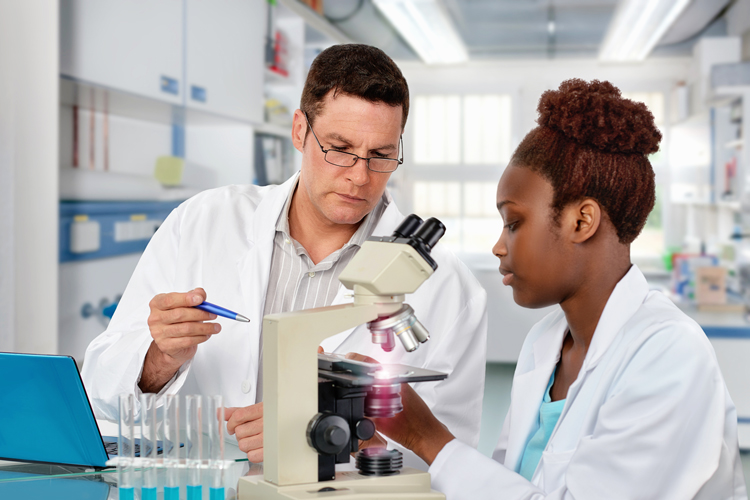
What's New in Medical Research
Podcast: a pivotal moment for science: a conversation with dr. francis collins .
In this episode of “Beyond the White Coat,” David Skorton, AAMC president and CEO, talks with Francis Collins, MD, PhD, director of the National Institutes of Health about how the United States can push ahead with the most critical research projects in a time when so much is constrained by unusual circumstances. The inaugural season of the "Beyond the White Coat" podcast features providers and researchers in academic medicine who discuss how they are responding to the COVID-19 pandemic. The podcast also examines ongoing, difficult conversations around clinical care and research. Learn more
Medical Research Initiatives
The AAMC leads and supports initiatives and projects to advance life-saving medical research that inspires members of the academic medicine community to serve the public, promote health, and improve care for all.
- AAMC Center for Health Justice
- Health System and Research Integration
- Facilities and Administrative (F&A) Costs
- Conflict of Interest and Transparency
- Research Means Hope
Data & Reports
The AAMC publishes resources on topics related to medical research.
- National MD-PhD Program Outcomes Study
- MD-PhD Program Graduates: Current Workplaces, Research Effort, and Types of Research They Do
- Assessing & Communicating the Value of Biomedical Research
- Implementing the Regulations on Financial Conflicts of Interest: Results from the AAMC Conflict of Interest Metrics Project
- Administration and Infrastructure for the Translational and Clinical Research Enterprise
- The Functions of Centers and Institutes in Academic Biomedical Research
Medical Research Issues
The AAMC is a leading voice and advocate for the full spectrum of medical research. We work with federal policy makers to ensure that our members' perspective is incorporated into federal legislation and regulation.
- Regulating Research
- Basic Science
- Research Training
- Stem Cell Research
- Research Evaluation
- Clinical Research
Professional Development Resources
Attend an event.
- Attend a meeting or webinar
- Medical Research Webinars
Join a group
- Join an affinity group or forum
- Advisory Panel on Research
- Council of Faculty and Academic Societies (CFAS)
- Forum on Conflict of Interest in Academe (FOCI Academe)
- Group on Educational Affairs (GEA)
- Graduate Research, Education, and Training (GREAT) Group
- Group for Research Advancement and Development (GRAND)
- Research on Care Community (ROCC)
Mentoring Resources
- Compact Between Biomedical Graduate Students and Their Research Advisors
- Compact Between Postdoctoral Appointees and Their Mentors
Apply for an award or funding opportunity
- AAMC Awards
- Award for Distinguished Research
- Robert Wood Johnson Foundation David E. Rogers Award
Learn Serve Lead
The AAMC’s annual meeting brings together diverse communities from across academic medicine so that professionals may learn from one another, find common ground, and build organizational capacity.
Affinity Groups
Professional development councils, groups, and organizations provide individuals at member institutions with access to leadership development, networking, and collaboration opportunities.

MRC list of institutes, units and centres
The Medical Research Council (MRC) provides funding to the research institutes, units and centres listed below.
- Laboratory of Molecular Biology
- Laboratory of Medical Sciences
- Health Data Research UK
- UK Dementia Research Institute
- The Francis Crick Institute
Centres and Units
Infections and immunity board.
- MRC Translational Immune Discovery Unit at the University of Oxford
- MRC Unit The Gambia at London School of Hygiene and Tropical Medicine (LSHTM)
- MRC-University of Glasgow Centre for Virus Research
- MRC/UVRI and LSHTM Uganda Research Unit
- MRC Centre for Global Infectious Disease Analysis at Imperial College London
- MRC Centre for Medical Mycology at University of Exeter
- MRC Centre for Molecular Bacteriology and Infection at Imperial College London
Molecular and Cellular Medicine Board
- MRC Human Genetics Unit at the University of Edinburgh
- MRC Mitochondrial Biology Unit at the University of Cambridge
- MRC Molecular Haematology Unit at the University of Oxford
- MRC Prion Unit at University College London
- MRC Protein Phosphorylation and Ubiquitylation Unit at the University of Dundee
- MRC Toxicology Unit at the University of Cambridge
- MRC Centre for Environment and Health, Imperial College London
- Wellcome-MRC Cambridge Stem Cell Institute, University of Cambridge
Strategic Partnerships:
- MRC Weatherall Institute of Molecular Medicine at the University of Oxford
- Institute of Genetics and Cancer at the University of Edinburgh
- Research Complex at Harwell
Neurosciences and Mental Health Board
- MRC Brain Network Dynamics Unit
- MRC Cognition and Brain Sciences Unit
- MRC Centre for Neurodevelopmental Disorders
Population and Systems Medicine Board
- MRC Biostatistics Unit (BSU), Cambridge
- MRC Clinical Trials Unit (CTU), UCL
- MRC Epidemiology Unit (EU), University of Cambridge
- MRC Integrative Epidemiology Unit (IEU), University of Bristol
- MRC Unit for Lifelong Health and Ageing, UCL
- MRC Metabolic Diseases Unit (MDU), University of Cambridge
- MRC & CSO Social & Public Health Sciences Unit (SPHSU), University of Glasgow
- Population Health Research Unit, University of Oxford
- MRC/Versus Arthritis Centre for Integrated research into Musculoskeletal Ageing (CIMA), Liverpool/Sheffield/NCL
- MRC/Versus Arthritis Centre for Musculoskeletal Ageing Research (CMAR), Birmingham/Nottingham
- Versus Arthritis/MRC Centre for Musculoskeletal Health and Work, University of Southampton
- MRC Lifecourse Epidemiology Centre (LEC), University of Southampton
- MRC Centre for Reproductive Health, University of Edinburgh .
Last updated: 27 November 2023
This is the website for UKRI: our seven research councils, Research England and Innovate UK. Let us know if you have feedback or would like to help improve our online products and services .
Thank you for visiting nature.com. You are using a browser version with limited support for CSS. To obtain the best experience, we recommend you use a more up to date browser (or turn off compatibility mode in Internet Explorer). In the meantime, to ensure continued support, we are displaying the site without styles and JavaScript.
- View all journals
Medical research articles from across Nature Portfolio
Medical research involves research in a wide range of fields, such as biology, chemistry, pharmacology and toxicology with the goal of developing new medicines or medical procedures or improving the application of those already available. It can be viewed as encompassing preclinical research (for example, in cellular systems and animal models) and clinical research (for example, clinical trials).
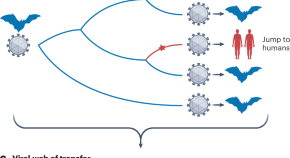
Frequent jumps from human hosts
An analysis of publicly available viral genomes explores the evolutionary dynamics of host jumps and shows that humans are as much a source of viral spillover events to other animals as they are recipients.
- Christophe Dessimoz
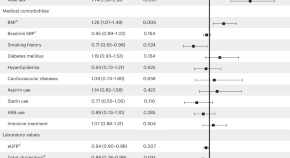
Intensive blood pressure control does not lower risk of cardiac conduction system diseases
Intensive blood pressure control has been suggested to reduce the risk of adverse cardiovascular events. However, the effect of intensive blood pressure control on cardiac conduction system disease has not been clarified. Our study in older patients with hypertension identified no effect of intensive blood pressure control on cardiac conduction system diseases.
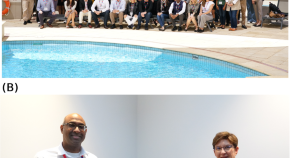
The 10 th Barossa meeting: Cell Signalling to Cancer Medicine
- Winnie L. Kan
- Barbara J. McClure
- Jason A. Powell
Related Subjects
- Drug development
- Epidemiology
- Experimental models of disease
- Genetics research
- Outcomes research
- Paediatric research
- Preclinical research
- Stem-cell research
- Clinical trial design
- Translational research
Latest Research and Reviews
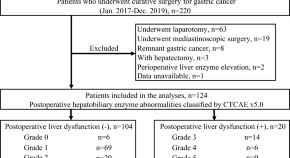
Risk factors for liver dysfunction and their clinical importance after gastric cancer surgery
- Shutaro Sumiyoshi
- Takeshi Kubota
- Eigo Otsuji
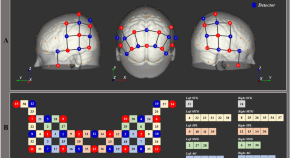
Investigating cortical activity during cybersickness by fNIRS
- Sang Seok Yeo
- Seo Yoon Park
- Seong Ho Yun
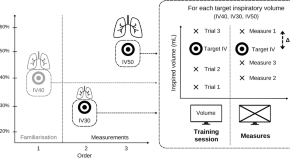
Impairment of lung volume perception and breathing control in hypermobile Ehlers-Danlos syndrome
- Adrien Hakimi
- Cyrille Bergoin
- Patrick Mucci
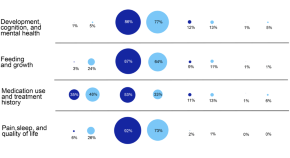
Consensus reporting guidelines to address gaps in descriptions of ultra-rare genetic conditions
- Ahmed Jamjoom
- Gregory Costain
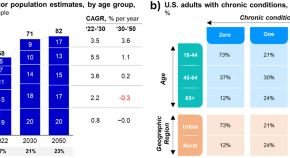
Healthcare on the brink: navigating the challenges of an aging society in the United States
- Charles H. Jones
- Mikael Dolsten
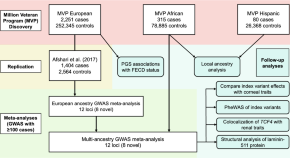
A multi-ancestry GWAS of Fuchs corneal dystrophy highlights the contributions of laminins, collagen, and endothelial cell regulation
A multi-ancestry GWAS meta-analysis of Fuchs endothelial corneal dystrophy identifies eight novel loci, including low-frequency missense variants in laminin genes LAMA5 and LAMB1 , and phenome-wide scans uncover pleiotropy with renal traits at TCF4 .
- Bryan R. Gorman
- Michael Francis
- Sudha K. Iyengar
News and Comment
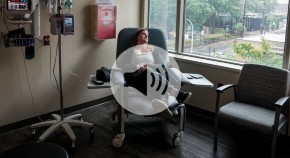
Audio long read: Why are so many young people getting cancer? What the data say
Researchers are scrambling to explain why rates of multiple cancers are increasing among adults under the age of 50.
- Heidi Ledford
- Benjamin Thompson

Evolving generation of new Extended Depth of Focus intraocular lenses
- Mayank A. Nanavaty
Response to the Commentary on: Safety and feasibility of percutaneous needle tunneling with platelet-rich plasma injections for Peyronie’s disease in the outpatient setting: a pilot study
- Ahmed S. Zugail
- Muaath Alshuaibi
- Sébastien Beley
Making HTLV-1 and those affected visible
Carolina Rosadas explains why we need more research investigating human T lymphotropic virus type 1 (HTLV-1) infections, and why more public visibility is needed for those affected.
- Carolina Rosadas
Evaluating large language models as agents in the clinic
Recent developments in large language models (LLMs) have unlocked opportunities for healthcare, from information synthesis to clinical decision support. These LLMs are not just capable of modeling language, but can also act as intelligent “agents” that interact with stakeholders in open-ended conversations and even influence clinical decision-making. Rather than relying on benchmarks that measure a model’s ability to process clinical data or answer standardized test questions, LLM agents can be modeled in high-fidelity simulations of clinical settings and should be assessed for their impact on clinical workflows. These evaluation frameworks, which we refer to as “Artificial Intelligence Structured Clinical Examinations” (“AI-SCE”), can draw from comparable technologies where machines operate with varying degrees of self-governance, such as self-driving cars, in dynamic environments with multiple stakeholders. Developing these robust, real-world clinical evaluations will be crucial towards deploying LLM agents in medical settings.
- Nikita Mehandru
- Brenda Y. Miao
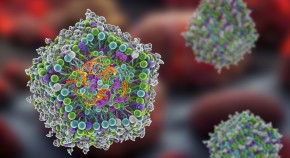
mRNA drug offers hope for treating a devastating childhood disease
Drug trial results show that vaccines aren’t the only use for the mRNA technology behind the most widely used COVID-19 jabs.
- Elie Dolgin
Quick links
- Explore articles by subject
- Guide to authors
- Editorial policies
Research Centers and Programs
- Alzheimer's Disease Research Center
- American Joint Replacement Research-Collaborative (AJRR-C)
- Biomedical Ethics Research Program
- Bipolar Disorder Biobank
- Cardiovascular Disease and Outcomes Research Program
- Cardiovascular Research Center
- Center for Advanced Imaging Research
- Center for Biomedical Discovery
- Center for Cell Signaling in Gastroenterology (C-SiG)
- Center for Clinical and Translational Science (CCaTS)
- Center for Individualized Medicine
- Center for Multiple Sclerosis and Autoimmune Neurology
- Center for Regenerative Biotherapeutics
- Children's Research Center
- Clinical Immunology and Immunotherapeutics Program
- Colon Cancer Family Registry
- CT Clinical Innovation Center
- Department of Defense Medical Research Office
- Enteric Neuroscience Program
- Epidemiology and Genetics of Lung Cancer Research Program
- Evidence-Based Practice Research Program
- Hospital Experiences to Advance Goals and Outcomes Network (HEXAGON)
- IBD Biobank Study
- Mayo Clinic Biobank
- Mayo Clinic Comprehensive Cancer Center — Research
- Mayo Clinic Housing-Based Socioeconomic Status (HOUSES) Program
- Mayo Clinic Robert M. and Billie Kelley Pirnie Translational Polycystic Kidney Disease (PKD) Center
- Mayo Clinic Study of Aging
- Mayo Mammography Health Study
- Mayo Nephrology Collaborative Group
- Melanoma and Skin Cancer Research Program
- Migraine Research Program
- Military Medicine Program
- Nicotine Research Program
- Nutrition Obesity Research Program
- Office of Postdoctoral Affairs and Research Training
- Pancreatic Cancer Early Detection Research Program
- Precision Neurotherapeutics Innovation Program
- Program on Physician Well-Being
- Psychiatric Genomics and Pharmacogenomics Program
- Rehabilitation Medicine Research Center
- Robert and Arlene Kogod Center on Aging
- Robert D. and Patricia E. Kern Center for the Science of Health Care Delivery
- Rochester Epidemiology Project (REP)
- SPARK Research Mentorship Program
- Spontaneous Coronary Artery Dissection (SCAD) Research Program
- Sports Medicine Research
- Thyroid Eye Disease Research Program
- Todd and Karen Wanek Family Program for Hypoplastic Left Heart Syndrome (HLHS)
- Translational Nanomedicine Program
- Transplant Immunology Program
- Transplant Research Center
- Traumatic Brain Injury Model System
- Van Cleve Cardiac Regenerative Medicine Program
- Women's Health Research Center
More about research at Mayo Clinic
- Research Faculty
- Laboratories
- Core Facilities
- Centers & Programs
- Departments & Divisions
- Clinical Trials
- Institutional Review Board
- Postdoctoral Fellowships
- Training Grant Programs
- Publications
Mayo Clinic Footer
- Request Appointment
- About Mayo Clinic
- About This Site
Legal Conditions and Terms
- Terms and Conditions
- Privacy Policy
- Notice of Privacy Practices
- Notice of Nondiscrimination
- Manage Cookies
Advertising
Mayo Clinic is a nonprofit organization and proceeds from Web advertising help support our mission. Mayo Clinic does not endorse any of the third party products and services advertised.
- Advertising and sponsorship policy
- Advertising and sponsorship opportunities
Reprint Permissions
A single copy of these materials may be reprinted for noncommercial personal use only. "Mayo," "Mayo Clinic," "MayoClinic.org," "Mayo Clinic Healthy Living," and the triple-shield Mayo Clinic logo are trademarks of Mayo Foundation for Medical Education and Research.
DESTINATION

1. Overview
Brief introduction to the country and its reputation in medical tourism.
Russia, the world’s largest country by land area, offers a unique blend of history, culture, and cutting-edge technology. While Russia may not be the first destination that comes to mind when considering medical tourism, it has been gaining traction in this field. With substantial investments in healthcare infrastructure and medical research, Russia is slowly but steadily becoming a destination worth considering for various medical procedures. The country has a growing reputation for offering state-of-the-art medical treatments, often at a fraction of the cost you might pay in Western Europe or North America.
Historical and Cultural Significance in Medicine
Russia has a long-standing history of medical research and innovation. From the times of renowned scientists like Ivan Pavlov to contemporary achievements in cardiology and neurology, the country has been instrumental in contributing to global medical science. Russian medical institutions have also been engaged in pioneering work in fields like radiology, organ transplantation, and aerospace medicine, reflecting a cultural emphasis on scientific inquiry and innovation.
The Medical Landscape
The Russian healthcare system is a mix of public and private institutions, providing an array of treatments ranging from general medicine to specialized surgeries. While public healthcare is generally available to citizens, the growing private healthcare sector caters to both local and international patients, often providing services that match global standards.
What Draws Medical Tourists to Russia?
Medical tourists often find Russia appealing due to its advanced technology, specialized treatments, and relatively lower costs. Moreover, the prospect of combining medical treatment with a cultural experience is another attractive feature. Known for its grand architecture, vibrant arts scene, and rich history, Russia offers an all-around travel experience alongside high-quality medical care.
2. Popular Medical Procedures
List and brief descriptions of procedures.
- Cosmetic Surgery : Including procedures like rhinoplasty, liposuction, and breast augmentation, Russia is increasingly becoming a destination for cosmetic surgery.
- Dental Treatments : Dental implants, crowns, and veneers are some of the sought-after treatments.
- Cardiac Surgery : With advanced technology, cardiac procedures like bypass surgeries and angioplasties are performed at specialized centers.
- Orthopedic Surgeries : Hip and knee replacements are commonly done here with a high success rate.

Specializations or Pioneering Treatments
Russia is becoming known for its cancer treatments, including specialized radiation therapies and immunotherapy treatments. Additionally, the country has been involved in research and treatment of neurological conditions, offering specialized services in this domain.
3. Top Hospitals & Clinics
Renowned hospitals and clinics.
- Almazov National Medical Research Centre, St. Petersburg
- European Medical Center, Moscow
- Moscow City Clinical Hospital
Accreditation and Affiliation
Most top hospitals are accredited by Russian healthcare authorities and some even possess international accreditations. These hospitals often collaborate with international medical institutions for research and training purposes.
Special Features, Awards, or Recognitions
Many hospitals have received awards for medical excellence and innovations in treatments. They also offer features like English-speaking staff, modern facilities, and state-of-the-art medical equipment.
4. Cost Comparison
Comparative data.
On average, medical procedures in Russia can cost 30-70% less than in Western Europe or North America. For instance, a dental implant that might cost upwards of $3,000 in the United States could be available for around $1,000 in Russia.
Price Ranges
Costs can vary based on the facility, location, and type of procedure. Always get multiple quotes and consult with healthcare providers to get a more accurate picture.
5. Quality & Safety
Medical standards and practices.
Russia is committed to ensuring high standards of medical care, supported by its educational system that produces skilled doctors and medical professionals. While there might be variations in quality between rural and urban centers, most metropolitan areas have hospitals and clinics equipped with modern technology and well-trained staff.
Accreditation Systems and Regulatory Bodies
In Russia, medical facilities are generally regulated by the Ministry of Health. While not all hospitals may have international accreditations, most top institutions meet or exceed global healthcare standards.
Quality Checks and Patient Safety Protocols
Russian healthcare providers employ a variety of safety measures such as pre-surgical consultations, sterilization protocols, and rigorous post-operative care. They also tend to follow internationally recognized best practices to ensure patient safety.
Patient Rights
Patients have the right to quality healthcare, the right to choose their physician, and the right to confidentiality. These are enshrined in Russian medical law and are generally adhered to by healthcare providers.
6. Medical Visa Information
Guidelines and requirements.
To obtain a medical visa, you generally need a formal invitation from the Russian medical institution where you plan to receive treatment. Proof of financial stability and medical insurance are often required.
Duration, Documentation, and Application Process
The visa can be valid for up to 90 days, with possible extensions in case of medical necessity. Documentation usually includes your passport, invitation letter, visa application form, and photographs. Applications are typically processed within 10 to 20 business days, although expedited services are available for an additional fee.
Travel-related Advisories or Restrictions
It’s advisable to keep an eye on travel advisories and consult your home country's embassy or consulate for the most current information.
7. Cultural Considerations
Local customs and etiquette.
While Russia is generally welcoming to tourists, being aware of local customs and etiquette can enrich your experience. A basic understanding of Russian manners, such as greetings and proper attire, can be beneficial.
Language and Communication
While the primary language is Russian, English is often spoken in large hospitals and medical centers. Nonetheless, it's advisable to confirm the availability of English-speaking staff or interpreters.
Dietary Considerations
Russia offers a variety of cuisine options, though traditional foods might be heavy in meat and dairy. Vegetarian and vegan options are increasingly available, particularly in larger cities.
8. Travel & Accommodation
Popular areas to stay.
Moscow and St. Petersburg are popular destinations with proximity to top medical facilities. Both cities offer a range of lodging options, from luxury hotels to budget-friendly hostels.
Proximity to Medical Facilities
Medical centers are often well-connected by public transportation or are just a short drive away from popular accommodation areas.
Transportation and Infrastructure
Russia has an extensive public transportation network, including subways, buses, and taxis. Apps like Uber are also widely used.
Post-procedure Relaxation and Recuperation Spots
Russia is rich in natural beauty, from the beaches of Sochi to the serene landscapes of Siberia, offering plenty of options for post-procedure relaxation.
9. Legal & Ethical Considerations
Legal rights of patients.
Patients have the right to informed consent, confidentiality, and quality healthcare as per Russian laws.
Medical Malpractice Laws and Patient Recourse
In cases of medical malpractice, patients have the right to legal recourse. However, legal proceedings can be long and complex.
Ethical Considerations
Ethical standards are generally in line with international norms. Issues such as organ transplantation are strictly regulated.
10. Benefits & Risks
Among the benefits are lower costs, high-quality specialized treatments, and the opportunity to explore Russian culture and history.
Potential Risks
Language barriers and variations in quality between rural and urban healthcare centers are some of the risks involved. Always conduct thorough research and consultations before proceeding with any medical treatment.
11. Post-procedure Care
Post-operative care.
Russian medical facilities often offer robust post-operative care programs, including rehabilitation and follow-up appointments.
Availability and Quality of Rehabilitation Centers
Rehabilitation centers, especially in metropolitan areas, are well-equipped and staffed with trained medical professionals.
12. Frequently Asked Questions (FAQs)
- Is English widely spoken in Russian hospitals? In major cities and top healthcare centers, yes. However, it's advisable to confirm this before you travel.
- How do I pay for medical procedures? Payment methods vary, but most top hospitals accept credit cards and wire transfers.
- Is it safe to travel alone? While generally safe, it is always advisable to be cautious and aware of your surroundings, especially in unfamiliar areas.
- Is medical insurance necessary? Yes, proof of medical insurance is usually a requirement for obtaining a medical visa.
- What is the quality of post-procedure care? High-quality post-procedure care is often available, particularly in specialized medical centers.
Global Provider Members

Russian Ruble
144,500,000
With an area the size of Russia, it is difficult to give any sort of general advice about the climate and weather, except that summers are warm to hot, and winters get very cold in some areas. In general, the climate of Russia can be described as highly continental, with warm-to-hot, dry summers and (very) cold winters with temperatures of -30°C or lower. Heavy snowfall is not uncommon.
Facilitators
Featured treatments.
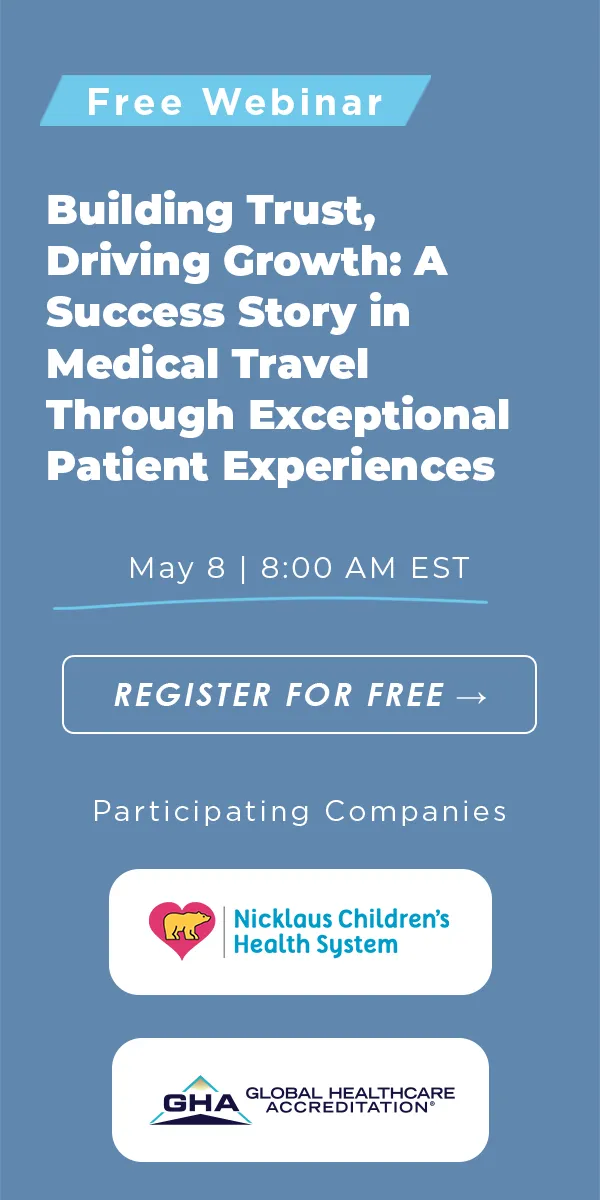
MedicalTourism.com
MedicalTourism.com is a free, confidential, independent resource for patients and industry providers. Our mission is to provide a central portal where patients, medical tourism providers, hospitals, clinics, employers, and insurance companies can all find the information they need. Our site focuses on patients looking for specific knowledge in the fields of medical tourism, dental tourism, and health tourism.
Clinical Drug Experience Knowledgebase
Government of russia report issue.

Organization Overview
- View all...
Alternative names
Active Ingredients
Research & Development (Clinical Trial Phases 1 -4)
Fda approved and marketed apis, drugs in phase 4 trials (36).
bromhexine ( 1 trial )
capecitabine (xeloda) ( 2 trials )
cilgavimab (Evushield) ( 1 trial )
cyclosporine (sandimmune) ( 1 trial )
dapagliflozin (farxiga) ( 2 trials )
dupilumab (dupixent) ( 2 trials )
dydrogesterone (gynorest) ( 1 trial )
empagliflozin (jardiance) ( 2 trials )
estradiol (progynon depot) ( 2 trials )
exenatide (byetta) ( 1 trial )
fenofibrate (fenoglide) ( 1 trial )
fluorouracil (efudex) ( 2 trials )
gamevac-combi ( 2 trials )
gliclazide ( 1 trial )
glimepiride (amaryl) ( 1 trial )
incobotulinumtoxinA (Xeomin) ( 1 trial )
ketoprofen (orudis) ( 1 trial )
ketorolac (acuvail) ( 2 trials )
leucovorin ( 1 trial )
liraglutide (victoza) ( 1 trial )
melatonin ( 4 trials )
metformin (glucophage) ( 1 trial )
methotrexate ( 3 trials )
methylprednisolone (medrol) ( 1 trial )
mycophenolate (CellCept) ( 1 trial )
oxaliplatin (eloxatin) ( 1 trial )
pimecrolimus (elidel) ( 1 trial )
regdanvimab (Regkirona) ( 1 trial )
resveratrol ( 1 trial )
secukinumab (cosentyx) ( 1 trial )
simvastatin (zocor) ( 1 trial )
sitagliptin (januvia) ( 4 trials )
tixagevimab (Evusheld) ( 1 trial )
ustekinumab (stelara) ( 1 trial )
vildagliptin ( 1 trial )
vitamin d3 ( 6 trials )
Drugs in Phase 3 Trials (42)
allogeneic hematopoietic stem cells (Hemacord) ( 2 trials )
amino acids (Freamine) ( 1 trial )
amlodipine (norvasc) ( 1 trial )
amoxicillin ( 1 trial )
bisoprolol (zebeta) ( 1 trial )
cefuroxime (zinacef) ( 1 trial )
cisplatin (platinol) ( 1 trial )
clavulanate (Augmentin) ( 1 trial )
CoviVac ( 4 trials )
cyclophosphamide (cytoxan) ( 2 trials )
cytarabine (cytosar-u) ( 1 trial )
dexamethasone ( 1 trial )
doxorubicin (Doxil) ( 4 trials )
elsulfavirine (Elpida) ( 3 trials )
enoxaparin (lovenox) ( 1 trial )
epivaccorona ( 3 trials )
etoposide (vepesid) ( 1 trial )
fulvestrant (faslodex) ( 1 trial )
gam-covid-vac lyo ( 12 trials )
gam-covid-vac (rad26) ( 3 trials )
gam-covid-vac (rad5) ( 1 trial )
gamtbvac ( 3 trials )
Goflikicept ( 1 trial )
ifosfamide (ifex) ( 1 trial )
insulin human (humulin) ( 2 trials )
insulin lispro (humalog) ( 1 trial )
interferon alpha-2b (Intron-A) ( 3 trials )
meropenem (merrem) ( 1 trial )
molixan ( 1 trial )
paclitaxel (taxol) ( 1 trial )
Pegfilgrastim ( 1 trial )
perindopril (aceon) ( 1 trial )
phosphatidylcholine ( 1 trial )
ribavirin (virazole) ( 1 trial )
ribociclib (kisqali) ( 1 trial )
rituximab (rituxan) ( 1 trial )
sargramostim (leukine) ( 1 trial )
smallpox vaccine, tissue culture adapted jennerian (ACAM2000) ( 1 trial )
staphylokinase ( 1 trial )
triptorelin (Trelstar) ( 1 trial )
vac∆6 ( 2 trials )
vincristine (oncovin) ( 1 trial )
Drugs in Phase 2 Trials (41)
99mtc mip 1404 ( 1 trial )
allogeneic adipose derived mesenchymal stem cell ( 1 trial )
autologous bone marrow derived mesenchymal cells ( 1 trial )
autologous cd19/cd22 chimeric antigen receptor t-cells ( 1 trial )
autologous stromal vascular fraction ( 1 trial )
bbibp-corv ( 1 trial )
bendamustine (treanda) ( 1 trial )
betuvax-cov-2 ( 1 trial )
blood plasma ( 1 trial )
bvrs-gamvac-combi ( 2 trials )
cblb612 ( 1 trial )
cefepime (maxipeme) ( 1 trial )
chadox1 ( 3 trials )
COVID-19 convalescent plasma ( 1 trial )
dacarbazine (dtic-dome) ( 1 trial )
entolimod ( 1 trial )
fluorothyazinone ( 2 trials )
fluticasone (cutivate) ( 1 trial )
gamcovimab ( 1 trial )
gamfluvac ( 2 trials )
gamlpv ( 2 trials )
histamine ( 1 trial )
melphalan (alkeran) ( 2 trials )
Mesenchymal Stem Cells Exosomes ( 2 trials )
methylene blue (proveblue) ( 1 trial )
mrna-1273 (Spikevax) ( 1 trial )
pembrolizumab (keytruda) ( 1 trial )
peripheral blood mesenchymal stem cells ( 1 trial )
pertechnetate ( 1 trial )
Prolgolimab ( 1 trial )
propionyl l-carnitine ( 1 trial )
reparixin ( 1 trial )
ruxolitinib (jakafi) ( 1 trial )
sacubitril (Entresto) ( 1 trial )
sodium chloride ( 1 trial )
sodium succinate ( 1 trial )
tag-7 gene modified inactivated tumor cells ( 1 trial )
tivantinib ( 1 trial )
toremifene (fareston) ( 1 trial )
umbilical cord mesenchymal stem cells ( 1 trial )
valsartan (diovan) ( 1 trial )
Drugs in Phase 1 Trials (15)
aceclofenac ( 1 trial )
anakinra (Kineret) ( 1 trial )
docetaxel (taxotere) ( 1 trial )
gamemab ( 1 trial )
gamezumab ( 1 trial )
glycolic acid tetrasubstituted piceatannol ( 1 trial )
indomethacin (indocin) ( 1 trial )
live attenuated influenza virus vaccine (Flumist) ( 1 trial )
nioch-14 ( 1 trial )
platelet-rich plasma ( 1 trial )
sicov/kk46 ( 1 trial )
smallpox vaccine, heat-stable freeze-dried powder, first generation ( 1 trial )
smallpox vaccine, live attenuated (imvamune) ( 1 trial )
treamid ( 1 trial )
vv-gmcsf-lact ( 1 trial )
Drugs in Other Trials (24)
acetylsalicylic acid (aspirin) ( 1 trial )
amiodarone (cordarone) ( 1 trial )
cefoperazone (cefobid) ( 1 trial )
celecoxib (celebrex) ( 1 trial )
chlorhexidine (hibitane) ( 1 trial )
d-limonene ( 1 trial )
erythromycin (ilosone) ( 1 trial )
estriol ( 2 trials )
exosomes from mesenchymal stem cells ( 1 trial )
formoterol (foradil) ( 1 trial )
ginger ( 1 trial )
human fecal microbiota (Reybota) ( 2 trials )
kombucha ( 1 trial )
lignin ( 1 trial )
menthol (Salonpas) ( 1 trial )
metronidazole (flagyl) ( 1 trial )
Niferidil ( 2 trials )
onabotulinumtoxinA (Botox) ( 1 trial )
potensa ( 1 trial )
propofol (diprivan) ( 1 trial )
quetiapine (seroquel) ( 1 trial )
sevoflurane (ultane) ( 1 trial )
tamsulosin (flomax) ( 1 trial )
tiotropium (spiriva) ( 1 trial )
Indications
Experimental Indications (Clinical Trials, Phases 1-4)
Acquired Immunodeficiency Syndrome (Phase 3)
Acute Coronary Syndrome (Phase 4)
Asthma (Phase 2)
Back Pain (Phase 4)
Breast Neoplasms (Phase 2)
Bronchiectasis (Phase 2)
Carcinoma (Phase 2)
Carcinoma, Renal Cell (Phase 2)
Coinfection (Phase 3)
Colitis (Phase 2)
Colitis, Ulcerative (Phase 2)
Colorectal Neoplasms (Phase 2)
Common Cold (Phase 3)
Communicable Diseases (Phase 4)
Contracture (Phase 2)
Contusions (Phase 2)
Coronary Artery Disease (Phase 4)
Coronavirus Infections (Phase 3)
Depression (Phase 4)
Depressive Disorder (Phase 4)
Diabetes Mellitus (Phase 4)
Diabetes Mellitus, Type 2 (Phase 4)
Diabetic Neuropathies (Phase 4)
Emergencies (Phase 1)
Essential Hypertension (Phase 2)
Fatty Liver (Phase 2)
Fibrosis (Phase 2)
Fissure in Ano (Phase 4)
Glucose Intolerance (Phase 4)
Graft vs Host Disease (Phase 2)
Granuloma (Phase 1)
Granulomatous Disease, Chronic (Phase 1)
Heart Failure (Phase 4)
Heart Failure, Diastolic (Phase 4)
Hemorrhagic Fever, Ebola (Phase 4)
Hepatitis (Phase 3)
Hepatitis A (Phase 3)
Hepatitis C (Phase 3)
Hepatitis C, Chronic (Phase 3)
HIV Infections (Phase 3)
Hyperplasia (Phase 2)
Hypertriglyceridemia (Phase 4)
Hypertrophy (Phase 2)
Hypoxia (Phase 2)
Immunologic Deficiency Syndromes (Phase 3)
Infections (Phase 4)
Influenza, Human (Phase 3)
Influenza in Birds (Phase 1)
Ischemia (Phase 2)
Kidney Neoplasms (Phase 2)
Leukemia (Phase 3)
Leukemia, Myeloid (Phase 3)
Leukemia, Myeloid, Acute (Phase 3)
Liver Diseases (Phase 2)
Low Back Pain (Phase 4)
Lymphoma (Phase 3)
Lymphoma, B-Cell (Phase 3)
Lymphoma, Non-Hodgkin (Phase 3)
Melanoma (Phase 2)
Metabolic Syndrome (Phase 1)
Neutropenia (Phase 3)
Non-alcoholic Fatty Liver Disease (Phase 2)
Osteoarthritis (Phase 4)
Osteoarthritis, Knee (Phase 4)
Peripheral Nervous System Diseases (Phase 4)
Pneumonia (Phase 2)
Pneumonia, Viral (Phase 2)
Prediabetic State (Phase 4)
Prostatic Hyperplasia (Phase 2)
Prostatic Neoplasms (Phase 2)
Pseudomonas Infections (Phase 2)
Pulmonary Eosinophilia (Phase 2)
Reperfusion Injury (Phase 2)
Respiratory Aspiration (Phase 2)
Severe Acute Respiratory Syndrome (Phase 3)
Spinal Cord Injuries (Phase 2)
Syndrome (Phase 4)
Thrombosis (Phase 3)
Torticollis (Phase 2)
Tuberculosis (Phase 2)
Ulcer (Phase 2)
Urinary Bladder Neck Obstruction (Phase 2)
Urinary Tract Infections (Phase 2)
Venous Thrombosis (Phase 3)
Virus Diseases (Phase 4)
Vitamin D Deficiency (Phase 4)
Whooping Cough (Phase 2)
Wounds and Injuries (Phase 2)
- Highest Phase: Phase 4
- # of Trials: 148
- # of Trial APIs: 158
Trials by Phase
Trials (148 total)
Trial APIs (158 total)
This paper is in the following e-collection/theme issue:
Published on 4.4.2024 in Vol 26 (2024)
Impacts of an Acute Care Telenursing Program on Discharge, Patient Experience, and Nursing Experience: Retrospective Cohort Comparison Study
Authors of this article:

There are no citations yet available for this article according to Crossref .
- Medical Tourism
Best Hospitals In Russia | Top 10 Hospitals in Russia

In the vast and diverse landscape of Russia, a nation renowned for its historical splendor, cultural richness, and scientific prowess, healthcare services have continued to evolve, keeping pace with global advancements. Among the vast network of hospitals, certain institutions have distinguished themselves by consistently delivering excellence in healthcare. These facilities are not only recognized for their state-of-the-art technology, top-notch medical professionals, and comprehensive services, but also for their unwavering commitment to patient care and safety. Welcome to our curated list of the top 10 hospitals in Russia, where we explore these exceptional institutions and the key attributes that set them apart in Russia's healthcare ecosystem.
List of Top 10 Hospitals in Russia
Pirogov national medical and surgical center - moscow, sklifosovsky institute of emergency care - moscow, moscow clinical scientific center (mcc) - moscow, city clinical hospital no. 31 - saint petersburg, almazov national medical research centre - saint petersburg, academician i.p. pavlov first saint petersburg state medical university hospital - saint petersburg, federal center for cardiovascular surgery - astrakhan, federal research and clinical center of physical-chemical medicine - moscow, n.n. blokhin national medical research center of oncology - moscow, city hospital no. 1 - novosibirsk.
- About Hospital: Pirogov National Medical and Surgical Center, located in Moscow, is renowned for its comprehensive medical services. With a legacy dating back to 1802, it combines rich traditions with cutting-edge technology, providing top-notch healthcare to patients.
- Team and Specialties: Pirogov Center boasts a highly skilled team of medical professionals specializing in various fields, including cardiology, neurology, orthopedics, and oncology. Their expertise ensures precise diagnoses and effective treatments for patients.
- Infrastructure: The hospital features state-of-the-art facilities equipped with modern medical equipment. From advanced operating theaters to diagnostic imaging units, the infrastructure supports accurate diagnostics and innovative medical interventions.
- Location: Moscow, Russia
- Hospital Address: Pirogovskaya Embankment, 1, Moscow, 105203, Russia
Facilities:
- Intensive care units with advanced life-support systems
- Specialized departments for organ transplants
- Advanced diagnostic imaging facilities (MRI, CT scans)
- Rehabilitation centers offering comprehensive therapies
- Well-equipped emergency department for prompt medical attention
- Dedicated research and development center for medical advancements
- Modernized laboratory facilities for accurate diagnostics
- Comfortable patient rooms with essential amenities
- Pharmacy providing a wide range of medications
- Cafeteria and parking facilities for the convenience of patients and visitors
Hospital Awards:
- National Healthcare Excellence Award for Outstanding Patient Care
- Recognition for Innovative Research in Medical Sciences
- Best Hospital for Cardiac Care in Moscow
- Accreditation by the Joint Commission International (JCI)
- National Recognition for Excellence in Surgical Services
Available Specialties:
- Orthopedics
- Gastroenterology
- Obstetrics and Gynecology
- Ophthalmology
- Dermatology
- About Hospital: The Sklifosovsky Institute of Emergency Care, located in Moscow, is a renowned medical institution specializing in emergency and trauma care. With a legacy spanning over a century, it has become a symbol of excellence in emergency medicine in Russia.
- Team and Specialties: Sklifosovsky Institute boasts a highly skilled team of emergency care specialists, including trauma surgeons, anesthesiologists, and critical care physicians. The hospital is equipped to handle a wide range of medical emergencies, from severe injuries to life-threatening conditions.
- Infrastructure: The hospital is equipped with state-of-the-art emergency rooms, operating theaters, and intensive care units to provide immediate and critical care services. It also houses specialized units for cardiac emergencies, neurosurgery, and burns.
- Hospital Address: Bolshaya Sukharevskaya Square, 3, Moscow, 129090, Russia
- Emergency department with round-the-clock services
- Specialized trauma units equipped for complex surgeries
- Advanced imaging technology for rapid diagnostics
- Helicopter landing pad for quick transfer of critically ill patients
- Rehabilitation center offering comprehensive post-trauma care
- Advanced life support systems in ambulances for safe patient transportation
- Research and training facilities for emergency medicine advancements
- Well-designed waiting areas and patient rooms for comfort
- Pharmacy providing necessary medications
- Cafeteria and parking facilities for convenience
- National Award for Excellence in Emergency Care
- Recognition for Outstanding Trauma Services
- Best Emergency Care Hospital in Moscow
- National Recognition for Research and Innovation in Emergency Medicine
- Trauma Care
- Cardiac Emergencies
- Neurosurgery
- Burns and Plastic Surgery
- Critical Care Medicine
- Pediatric Emergencies
- Respiratory Emergencies
- Obstetric Emergencies
- Gastrointestinal Emergencies
- About Hospital: Moscow Clinical Scientific Center is a leading multidisciplinary medical institution in Moscow. It combines clinical practice, education, and scientific research to provide comprehensive healthcare services. The hospital is known for its commitment to evidence-based medicine and patient-centered care.
- Team and Specialties: MCC boasts a team of highly experienced physicians, surgeons, and researchers specializing in various medical fields. The hospital offers a wide range of specialties, including cardiology, oncology, neurology, gastroenterology, and endocrinology.
- Infrastructure: The hospital features modern infrastructure and advanced medical technologies. It houses well-equipped operating rooms, diagnostic imaging facilities, and specialized units for various medical disciplines. The infrastructure supports efficient and accurate diagnostics, minimally invasive procedures, and advanced surgical interventions.
- Hospital Address: Stromynka St, 7, Moscow, 107076, Russia
- Comprehensive diagnostic services, including MRI, CT scans, and laboratory tests
- Specialized clinics for outpatient care
- Advanced surgical units for complex procedures
- Intensive care units with cutting-edge monitoring and life support systems
- Rehabilitation center offering physical therapy and rehabilitation programs
- Well-designed patient rooms ensuring comfort and privacy
- Research and innovation center promoting scientific advancements
- Emergency services available 24/7
- National Recognition for Excellence in Patient Safety
- Award for Outstanding Contributions to Medical Research
- Best Multidisciplinary Hospital in Moscow
- National Award for Innovation in Healthcare Services
- Endocrinology
- Pulmonology
- Rheumatology
- Otolaryngology (ENT)
- About Hospital: City Clinical Hospital No. 31, located in Saint Petersburg, is a prominent healthcare institution providing comprehensive medical services. With a focus on patient care and advanced treatment approaches, the hospital has gained recognition for its excellence in healthcare delivery.
- Team and Specialties: The hospital is home to a skilled team of medical professionals, including specialists in internal medicine, surgery, pediatrics, and more. The hospital's departments cover a wide range of medical specialties, ensuring personalized and specialized care for patients.
- Infrastructure: City Clinical Hospital No. 31 features modern infrastructure with well-equipped operating rooms, advanced diagnostic facilities, and specialized units. The hospital utilizes state-of-the-art technology and medical equipment to deliver accurate diagnoses and effective treatments.
- Location: Saint Petersburg, Russia
- Hospital Address: Marshala Tukhachevskogo St., 28, Saint Petersburg, 195067, Russia
- Specialized clinics for various medical specialties
- Advanced diagnostic imaging services (MRI, CT scans, X-rays)
- Operating theaters equipped with modern surgical instruments
- Intensive care units providing critical care support
- Rehabilitation center offering comprehensive therapy programs
- Well-designed patient rooms with modern amenities
- Emergency department for immediate medical attention
- Laboratory facilities for accurate diagnostic testing
- Convenient parking and cafeteria facilities
- Excellence in Patient Care Award
- National Recognition for Medical Innovation
- Best Hospital for Pediatric Care in Saint Petersburg
- Award for Outstanding Surgical Services
- Internal Medicine
- Surgery (General, Orthopedic, Neurosurgery, etc.)
- Gynecology and Obstetrics
- About Hospital: Almazov National Medical Research Centre is a leading medical institution located in Saint Petersburg. It is a renowned center for medical research, education, and patient care. The hospital focuses on delivering advanced treatments and improving healthcare through scientific innovation.
- Team and Specialties: Almazov Centre boasts a multidisciplinary team of highly skilled healthcare professionals, including physicians, surgeons, researchers, and support staff. The hospital offers specialized care in areas such as cardiology, cardiovascular surgery, genetics, and endocrinology.
- Infrastructure: The hospital features state-of-the-art infrastructure with advanced medical equipment and facilities. It houses cutting-edge diagnostic imaging centers, hybrid operating rooms, and specialized units for research and clinical trials. The infrastructure supports the delivery of precise diagnostics, minimally invasive procedures, and complex surgeries.
- Hospital Address: Akkuratova St., 2, Saint Petersburg, 197341, Russia
- Advanced cardiovascular imaging services (MRI, CT scans, angiography)
- Hybrid operating rooms for minimally invasive surgeries
- Specialized clinics for cardiology, endocrinology, genetics, and more
- Intensive care units equipped with advanced monitoring systems
- Rehabilitation center offering comprehensive recovery programs
- Well-appointed patient rooms ensuring comfort and privacy
- Cafeteria, garden, and parking facilities for convenience
- National Award for Excellence in Cardiology Services
- Recognition for Research and Innovation in Medical Sciences
- Best Hospital for Cardiovascular Care in Saint Petersburg
- National Award for Advancements in Genetic Medicine
- Cardiovascular Surgery
- About Hospital: The Academician I.P. Pavlov First Saint Petersburg State Medical University Hospital, affiliated with the esteemed medical university, is a leading medical institution in Saint Petersburg. It combines academic excellence with clinical expertise to provide high-quality healthcare services.
- Team and Specialties: The hospital is staffed by a dedicated team of medical professionals, including renowned professors, experienced physicians, and specialists across various medical fields. The hospital offers comprehensive care in specialties such as cardiology, neurology, oncology, and pediatrics.
- Infrastructure: The hospital is equipped with modern infrastructure, including state-of-the-art diagnostic facilities, advanced operating theaters, and specialized treatment units. The infrastructure supports accurate diagnostics, advanced surgical interventions, and innovative treatment approaches.
- Hospital Address: L'va Tolstogo St., 6-8, Saint Petersburg, 197022, Russia
- Comprehensive diagnostic services, including imaging, laboratory, and pathology
- Advanced operating theaters with cutting-edge surgical equipment
- Intensive care units providing specialized critical care support
- Rehabilitation center offering a range of therapies for recovery
- Research and innovation center fostering scientific advancements
- Training facilities for medical education and research
- National Recognition for Excellence in Medical Education
- Award for Outstanding Research Contributions
- Best Hospital for Academic Medicine in Saint Petersburg
- National Award for Pediatric Care
- About Hospital: The Federal Center for Cardiovascular Surgery, located in Astrakhan, is a renowned institution specializing in cardiac care. It is dedicated to providing comprehensive cardiovascular services, including diagnosis, treatment, and rehabilitation, to patients with heart conditions.
- Team and Specialties: The hospital houses a team of highly skilled cardiologists, cardiac surgeons, and specialized healthcare professionals. They have extensive expertise in various areas of cardiovascular medicine, such as interventional cardiology, electrophysiology, and cardiac surgery.
- Infrastructure: The hospital is equipped with state-of-the-art infrastructure and cutting-edge technology specific to cardiovascular care. It features advanced cardiac catheterization laboratories, hybrid operating rooms, and specialized units for cardiac rehabilitation. The infrastructure supports precision diagnostics and advanced interventions for optimal patient outcomes.
- Location: Astrakhan, Russia
- Hospital Address: 20th Building Line, 26, Astrakhan, 414011, Russia
- Advanced cardiac diagnostic services, including angiography and echocardiography
- Hybrid operating rooms for minimally invasive and complex cardiac surgeries
- Intensive care units specialized in cardiac critical care
- Rehabilitation center with tailored programs for cardiac patients
- Well-appointed patient rooms ensuring comfort and recovery
- Research and education center for advancements in cardiovascular medicine
- Pharmacy providing specialized cardiac medications
- Emergency services for immediate cardiac care
- Laboratory facilities for comprehensive cardiac testing
- National Recognition for Excellence in Cardiovascular Services
- Award for Innovation in Cardiac Procedures
- Best Cardiovascular Hospital in Astrakhan
- National Award for Cardiac Rehabilitation Services
- Interventional Cardiology
- Cardiac Surgery
- Electrophysiology
- Heart Failure Management
- Cardiovascular Imaging
- Pediatric Cardiology
- Cardiac Rehabilitation
- Vascular Surgery
- Hypertension Management
- Cardiac Genetics
- About Hospital: The Federal Research and Clinical Center of Physical-Chemical Medicine, located in Moscow, is a leading medical institution specializing in physical-chemical medicine and advanced therapies. It is dedicated to research, innovation, and personalized treatments for various diseases.
- Team and Specialties: The hospital boasts a multidisciplinary team of experts, including physicians, researchers, and scientists. The center focuses on integrating physical-chemical medicine into clinical practice, offering specialized care in areas such as regenerative medicine, personalized therapy, and targeted drug delivery.
- Infrastructure: The hospital features state-of-the-art infrastructure with advanced laboratories, research facilities, and specialized treatment units. It utilizes cutting-edge technologies and techniques to develop innovative treatments and personalized medicine approaches.
- Hospital Address: Kashirskoye Shosse, 46, Moscow, 115522, Russia
- Advanced laboratories for research and development
- Specialized treatment units for regenerative medicine and targeted therapy
- Advanced diagnostic imaging services (MRI, CT scans, etc.)
- Rehabilitation center offering tailored programs for patients
- Well-equipped patient rooms ensuring comfort and recovery
- Pharmacy providing specialized medications
- National Recognition for Excellence in Research and Innovation
- Award for Advancements in Personalized Medicine
- Best Hospital for Physical-Chemical Medicine in Moscow
- National Award for Regenerative Medicine
- Regenerative Medicine
- Targeted Therapy
- Personalized Medicine
- Nanomedicine
- Drug Delivery Systems
- Biomaterials and Tissue Engineering
- Genetic Medicine
- Radiopharmaceuticals
- Molecular Diagnostics
- Theranostics
- About Hospital: The N.N. Blokhin National Medical Research Center of Oncology, located in Moscow, is a prestigious medical institution specializing in cancer care and research. It is dedicated to the diagnosis, treatment, and prevention of various types of cancers.
- Team and Specialties: The hospital boasts a highly skilled team of oncologists, surgeons, radiation therapists, and researchers. They specialize in various areas of oncology, including medical oncology, surgical oncology, radiation oncology, and pediatric oncology.
- Infrastructure: The hospital features advanced infrastructure and cutting-edge technologies for cancer diagnosis and treatment. It has state-of-the-art radiation therapy units, specialized surgical theaters, and multidisciplinary clinics. The infrastructure supports precise cancer diagnostics, minimally invasive procedures, and comprehensive treatment plans.
- Hospital Address: Kashirskoye Shosse, 24, Moscow, 115478, Russia
- Advanced diagnostic services, including PET-CT scans and molecular diagnostics
- Radiation therapy units equipped with modern linear accelerators
- Specialized surgical theaters for oncologic surgeries
- Multidisciplinary clinics for comprehensive cancer care
- Pediatric oncology department with child-friendly facilities
- Rehabilitation center offering supportive care programs
- Research and innovation center for advancements in cancer treatment
- Pharmacy providing specialized oncology medications
- Emergency services for immediate oncologic care
- National Recognition for Excellence in Cancer Care
- Award for Innovations in Oncology Treatment
- Best Oncology Center in Moscow
- National Award for Pediatric Oncology Services
- Medical Oncology
- Surgical Oncology
- Radiation Oncology
- Pediatric Oncology
- Palliative Care
- Genetic Counseling
- Clinical Trials
- Supportive Care
- Cancer Prevention and Screening
- About Hospital: City Hospital No. 1, located in Novosibirsk, is a prominent healthcare institution providing comprehensive medical services to the community. It is recognized for its commitment to patient care, advanced treatments, and medical education.
- Team and Specialties: The hospital boasts a team of highly skilled physicians, specialists, and support staff dedicated to delivering quality healthcare. It offers a wide range of medical specialties, including internal medicine, surgery, pediatrics, and gynecology.
- Infrastructure: City Hospital No. 1 features modern infrastructure with well-equipped departments, diagnostic facilities, and treatment units. It utilizes advanced medical technologies to ensure accurate diagnostics, efficient treatments, and excellent patient outcomes.
- Location: Novosibirsk, Russia
- Hospital Address: Ulitsa Timiryazeva, 2, Novosibirsk, 630099, Russia
- Outpatient clinics providing primary and specialized care
- Advanced diagnostic imaging services, including X-rays and ultrasound
- Well-equipped operating theaters for various surgical procedures
- Intensive care units offering critical care support
- Rehabilitation center with comprehensive therapy programs
- National Recognition for Excellence in Patient Care
- Award for Best Hospital in Novosibirsk
- Recognition for Contributions to Medical Education
- National Award for Quality Improvement in Healthcare Services
- General Surgery
In conclusion, Russia is home to a diverse range of exceptional hospitals that are at the forefront of healthcare delivery, research, and innovation. The top 10 hospitals mentioned in this blog represent a selection of these outstanding institutions, each offering specialized medical services and demonstrating a commitment to patient care.
From the Pirogov National Medical and Surgical Center in Moscow to the City Hospital No. 1 in Novosibirsk, these hospitals showcase the highest standards of healthcare delivery in Russia. They feature advanced infrastructure, cutting-edge technology, and highly skilled medical professionals who specialize in various fields, ensuring comprehensive and personalized care for patients.
These hospitals have received recognition and awards for their excellence in medical services, patient satisfaction, research contributions, and innovations in healthcare. Their commitment to advancing medical knowledge, embracing technological advancements, and providing patient-centered care sets them apart as leaders in the healthcare industry.
When it comes to seeking medical care, these top hospitals in Russia are reliable choices for individuals looking for the best treatment options and outcomes. They are committed to improving the health and well-being of their patients, emphasizing the importance of quality healthcare in enhancing lives.
As healthcare continues to evolve, these hospitals will undoubtedly remain at the forefront of medical advancements, driving innovation and delivering exceptional care to the people of Russia. When faced with medical challenges, individuals can confidently rely on these hospitals to provide the highest level of medical expertise, state-of-the-art facilities, and compassionate patient care.
PLEASE NOTE: The medical/health information on our website is for information purposes and not a substitute for medical advice.
--- published by sunil kumar, latest medical tourism.

Best Hospitals For Cancer Treatment In Telangana | Top 10 H...

Best Hospitals For Cancer Treatment In Rajasthan | Top 10 H...

Best Hospitals For Cancer Treatment In Gujarat | Top 10 Hosp...

Best Hospitals For Liver Transplant In Assam | Top 10 Hospit...

Best Hospitals For Liver Transplant In Odisha | Top 10 Hospi...

Change Password

Please Enter Valid Email Id!
Invalid captcha.
Destinations
- International
Association of breastfeeding with mental disorders in mother and child: a systematic review and meta-analysis
Affiliations.
- 1 Charité - Universitätsmedizin Berlin, Einstein Center for Neurosciences, Berlin, Germany.
- 2 V. Serbsky Federal Medical Research Center for Psychiatry and Narcology of the Ministry of Health of the Russian Federation, Moscow, Russia.
- 3 Moscow Research and Clinical Centre for Neuropsychiatry, Moscow, Russia.
- 4 Moscow City Clinical Hospital After V.M. Buyanov, Moscow, Russia.
- 5 Department of Brain Sciences, Faculty of Medicine, Dementia Research Institute UK, Imperial College London, London, UK.
- 6 Endocrinology Research Centre, Moscow, Russia.
- 7 Stroke Unit, Santa Maria Della Misericordia Hospital, University of Perugia, Perugia, Italy.
- 8 Division of Clinical Immunology & Allergy, Department of Medicine, and Department of Health Research Methods, Evidence & Impact, McMaster University, Hamilton, Canada.
- 9 Department of Pediatrics, Pediatric Epidemiology, Medical Faculty, Leipzig University, Leipzig, Germany.
- 10 German Center for Child and Youth Health, Leipzig, Germany.
- 11 Department of Pediatrics, Paracelsus Medical University, Klinikum Nürnberg, Universitätsklinik Der Paracelsus Medizinischen Privatuniversität Nürnberg, Nuremberg, Germany.
- 12 Department of Pediatrics, Paracelsus Medical University, Salzburg, Austria.
- 13 Institute of Psychiatry, Psychology and Neuroscience, King's College London, London, UK.
- 14 Department of Paediatrics and Paediatric Infectious Diseases, Institute of Child's Health, I.M. Sechenov First Moscow State Medical University, Sechenov University, Moscow, Russia.
- 15 National Heart and Lung Institute, Imperial College London, London, UK. [email protected].
- 16 National Heart and Lung Institute, Imperial College London, London, UK. [email protected].
- 17 Care for Long Term Conditions Division, Florence Nightingale Faculty of Nursing, Midwifery and Palliative Care, King's College London, London, UK. [email protected].
- 18 I.M. Sechenov First Moscow State Medical University, Sechenov University, Moscow, Russia. [email protected].
- 19 Department of Infectious Disease, Faculty of Medicine, Imperial College London, London, United Kingdom. [email protected].
- PMID: 37840122
- PMCID: PMC10577970
- DOI: 10.1186/s12916-023-03071-7
Background: Breastfeeding has long been associated with numerous benefits for both mothers and infants. While some observational studies have explored the relationship between breastfeeding and mental health outcomes in mothers and children, a systematic review of the available evidence is lacking. The purpose of this study is to systematically evaluate the association between breastfeeding and mental health disorders in mothers and children.
Methods: We systematically searched MEDLINE and EMBASE from inception to June 2, 2023. The inclusion criteria consisted of all studies evaluating links between breastfeeding and development of mental health disorders in children and mothers. Risk of bias was assessed using the Newcastle-Ottawa Scale (NOS) while grading of Recommendations Assessment, Development and Evaluation (GRADE) was used to assess the certainty of evidence. A random-effects meta-analysis was used if possible, to estimate the odds ratio for the association between breastfeeding and mental health outcomes. The Mantel-Haenszel method was utilised for pooling ORs across studies. Study heterogeneity was assessed using the I 2 statistic.
Results: Our review identified twenty-one original study. Of these, 18 focused on the association between breastfeeding and child health, assessing depressive disorders, schizophrenia, anxiety disorders, eating disorders and borderline personality disorder. Three studies evaluated the associations between breastfeeding and maternal mental health disorders. Three studies looking at outcomes in children showed no significant association between breastfeeding and occurrence of schizophrenia later in life (OR 0.98; 95% CI 0.57-1.71; I 2 = 29%). For depressive disorders (5 studies) and anxiety disorders (3 studies), we found conflicting evidence with some studies showing a small protective effect while others found no effect. The GRADE certainty for all these findings was very low due to multiple limitations. Three studies looking at association between breastfeeding and maternal mental health, were too heterogeneous to draw any firm conclusions.
Conclusions: We found limited evidence to support a protective association between breastfeeding and the development of mental health disorders in children later in life. The data regarding the association between breastfeeding and maternal mental health beyond the postnatal period is also limited. The methodological limitations of the published literature prevent definitive conclusions, and further research is needed to better understand the relationship between breastfeeding and mental health in mothers and children.
Keywords: Anxiety disorders; Breastfeeding; Child health; Depressive disorders; Maternal health; Mental health; Schizophrenia; Systematic review.
© 2023. BioMed Central Ltd., part of Springer Nature.
Publication types
- Meta-Analysis
- Systematic Review
- Anxiety Disorders
- Breast Feeding*
- Feeding and Eating Disorders*
- Mental Health
- Mothers / psychology

IMAGES
COMMENTS
Our Center, Dmitry Rogachev National Research Center of Pediatric Hematology, Oncology and Immunology - is one of the largest institutions in the field of cancer, inborn and acquired blood disorders and immune deficiencies. Physicians of more than 38 subspecialties work in the Center and over 200 of them have the PhD degree.
The Blokhin National Medical Research Center of Oncology of the Russian Ministry of Health is the largest oncological clinic in Russia and Europe, one of the largest oncological clinics in the world, which has the latest equipment and all advanced methods of diagnosis and treatment of cancer.
Medical Research Issues. The AAMC is a leading voice and advocate for the full spectrum of medical research. We work with federal policy makers to ensure that our members' perspective is incorporated into federal legislation and regulation. Regulating Research. Basic Science. Research Training. Stem Cell Research. Research Evaluation.
Apply for funding for the application of artificial intelligence (AI), engineering biology, and quantum technologies in biomedical research and development. You must be based at a UK research organisation eligible for MRC funding. Opportunity status: Open. Funders: Medical Research Council (MRC) Funding type: Grant. Publication date:
Students can undergo a mandatory annual medical examination at the polyclinic. Diagnostic Medical Center №1, located at ul. Miklouho-Maclay 29 bldg. 2, provides round-the-clock emergency medical care for students living in University dormitory. Emergency phone number: + 7-495-330-80-65 (around the clock).
The Medical Research Council (MRC) provides funding to the research institutes, units and centres listed below. Institutes. Laboratory of Molecular Biology; Laboratory of Medical Sciences; Health Data Research UK; UK Dementia Research Institute; The Francis Crick Institute; Centres and Units Infections and Immunity Board. Units:
Medical research involves research in a wide range of fields, such as biology, chemistry, pharmacology and toxicology with the goal of developing new medicines or medical procedures or improving ...
Contacts and opening hours of Administration of the National Medical Research Radiological Centre of the Ministry of Health of the Russian Federation see Detail>> P. Hertsen Moscow Oncology Research Institute (MORI) Tel.: +7 (495) 150-11-22. E-mail: [email protected] (Patient relations department)
6 National Medical Research Center for Hematology, 125167, 4a Novy Zykovsky proezd, Moscow, Russia. 7 Federal State Budget Institution "National Research Centre for Epidemiology and Microbiology named after Honorary Academician N F Gamaleya" of the Ministry of Health of the Russian Federation, 123098, 18 Gamaleya str., Moscow, Russia.
10 VieCuri Medical Centre, Noord-Limburg, Venlo, The Netherlands. 11 NN Blokhin National Medical Research Centre of Oncology, Moscow, Russia. 12 Moscow City Oncology Hospital N62, Moscow, Russia. 13 Group Practice for Haematology and Oncology, Magdeburg, Germany.
Center for Regenerative Biotherapeutics. Children's Research Center. Clinical Immunology and Immunotherapeutics Program. Colon Cancer Family Registry. CT Clinical Innovation Center. Department of Defense Medical Research Office. Enteric Neuroscience Program. Epidemiology and Genetics of Lung Cancer Research Program. Evidence-Based Practice ...
Journal of Medical Internet Research 8278 articles ... 12 Biomedical Network Research Centre on Mental Health (CIBERSAM), Barcelona, Spain Corresponding Author: Dimitra Anastasiadou, PhD; Department of Clinical and Health Psychology, Universitat Autònoma de Barcelona Cerdanyola del Vallès, Barcelona ...
Affiliations 1 Department of Neurology, UMC Utrecht Brain Centre, University Medical Centre Utrecht, Utrecht, the Netherlands.; 2 Biostatistics & Research Support, Julius Centre for Health Sciences and Primary Care, University Medical Centre Utrecht, Utrecht, the Netherlands.; 3 Department of Basic and Clinical Neuroscience, King's College London, Maurice Wohl Clinical Neuroscience ...
At the foundation of Johns Hopkins Medicine is research — from basic research, where scientists study cells and mechanisms, to clinical research that builds on those findings using trials, to translational research that takes information learned from trials to the patient bedside. Browse Research Topics.
Background: Virtual reality (VR) interventions, based on cognitive behavioral therapy principles, have been proven effective as complementary tools in managing obesity and have been associated with promoting healthy behaviors and addressing body image concerns. However, they have not fully addressed certain underlying causes of obesity, such as a lack of motivation to change, low self-efficacy ...
Background: Patients with cystic fibrosis (CF) need costly medical care and adequate therapy with expensive medicinal products. Tigerase® is the first biosimilar of dornase alfa, developed by the lead Russian biotechnology company GENERIUM. The aim of the manuscript to present post hoc sub-analysis of patients' data with cystic fibrosis and severe pulmonary impairment of a larger comparative ...
Russia has a long-standing history of medical research and innovation. From the times of renowned scientists like Ivan Pavlov to contemporary achievements in cardiology and neurology, the country has been instrumental in contributing to global medical science. ... Almazov National Medical Research Centre, St. Petersburg; European Medical Center ...
Hospice - hospital - scientific centre. The medical work at Sheremetev's "house" came into focus after Alexei Tarasenkov became chief doctor in 1858. He almost rebuilt the hospital system by closely controlling the purchase and prescription of medicines, and doctors began regular medical rounds and examinations.
1 Russian National Research Medical Institute State Budgetary Institution of Higher Professional Education N.I. Pirogov Russian National Research Medical Institute of the Ministry of Health of Russia | Almazov National Medical Research Centre - Department of Hypertension, Saint Petersburg, Russia | AVVA Pharmaceuticals Ltd. | Azbuka vkusa | Betuvax LLC | Center for New Medical Technologies ...
4 Association «Eurasian Association of Therapists»; Pirogov Russian National Research Medical University. 5 Association «Eurasian Association of Therapists»; North-Western State Medical University named after I.I. Mechnikov. 6 Sechenov University. 7 Almazov National Medical Research Centre" of the Ministry of Health of the Russian Federation.
Background: Despite widespread growth of televisits and telemedicine, it is unclear how telenursing could be applied to augment nurse labor and support nursing. Objective: This study evaluated a large-scale acute care telenurse (ACTN) program to support web-based admission and discharge processes for hospitalized patients. Methods: A retrospective, observational cohort comparison was performed ...
About Hospital: Almazov National Medical Research Centre is a leading medical institution located in Saint Petersburg.It is a renowned center for medical research, education, and patient care. The hospital focuses on delivering advanced treatments and improving healthcare through scientific innovation.
3 Soloviev Research and Clinical Center for Neuropsychiatry, Moscow, Russia. 4 School of Physics, Astronomy, ... 18 Centre for Tropical Medicine and Global Health, Nuffield Department of Medicine ... We extracted data from the medical records of adult patients who were consecutively admitted for suspected COVID-19 infection in Moscow between 8 ...
Medical care is also provided by specialty hospitals and medical research institutions. Perhaps the most prominent of the city's hospitals is the Botkinskaya, founded in 1911. As in the rest of Russia, public health care facilities in Moscow ... with its main building southwest of the city centre, has a large international student ...
10 Department of Dermatology and Centre for Chronic Pruritus, University Hospital Münster, Münster, Germany. 11 Department of Psychology, University of Zaragoza, Zaragoza, Spain. 12 Aragon Psychodermatology Research Group Zaragoza, Zaragoza, Spain. 13 Academic Medical Centre, University of Amsterdam, Amsterdam, the Netherlands.
Affiliations 1 Charité - Universitätsmedizin Berlin, Einstein Center for Neurosciences, Berlin, Germany.; 2 V. Serbsky Federal Medical Research Center for Psychiatry and Narcology of the Ministry of Health of the Russian Federation, Moscow, Russia.; 3 Moscow Research and Clinical Centre for Neuropsychiatry, Moscow, Russia.; 4 Moscow City Clinical Hospital After V.M. Buyanov, Moscow, Russia.